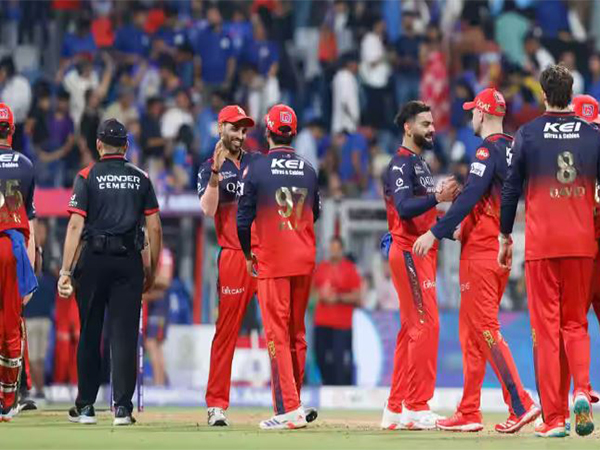Microbiologist says COVID-19 vaccines made after in-depth study, research
Jan 16, 2021

New Delhi [India], January 16 : Vaccines are always made with a lot of effort, and Indian COVID-19 vaccines have been made after plenty of study and research, said Dr Nandini Duggal, Head of Microbiology at Delhi's Ram Manohar Lohia Hospital after taking the COVID-19 vaccine shot on Saturday.
Dispelling the misinformation surrounding the safety of the COVID-19 vaccine, Dr Duggal told ANI, "There are certain tolerable reactions (cough and little pain) that people are bound to face. And they are well informed in advance."
Speaking about her experience of getting vaccinated, she said, "I felt no pain. It is unlike any other vaccine. For half an hour I was kept under observation. It took barely 10 minutes. First, the verification was done. Then all other procedures were explained to us."
Talking about his experience after getting vaccinated, Nitin Choudhary, Assistant Professor (Department of Anesthesia) at Atal Bihari Vajpayee Institute of Medical Sciences, said, "Once you come here, they briefly tell you about the vaccination process. Thereafter, they give your consent to tell you what little you might face after the vaccines. Then the vaccine is administered."
"I think everybody is a little apprehensive but looking at all those studies done on the vaccination and the information that has been provided to us, it seems pretty safe," he said.
"Obviously, whenever anything new comes up, there is a bit of anxiety. But since we have been frontline without the vaccine then why not with the vaccine," the Assistant Professor said adding that he is 99 per cent confident.
Earlier today, AIIMS Director Dr Randeep Singh Guleria along with NITI Aayog member VK Paul were administered the COVID-19 vaccine shot at AIIMS Delhi on the inaugural day of the nationwide roll-out of vaccination.
Termed as the world's largest vaccination programme, covering the entire length and breadth of India, the drive aims to first vaccinate millions of its healthcare and frontline workers and then reach an estimated 3 crore people by the end of its first phase.
In the first phase, government and private-sector health care workers, including Integrated Child Development Services workers, will receive the vaccine.

















